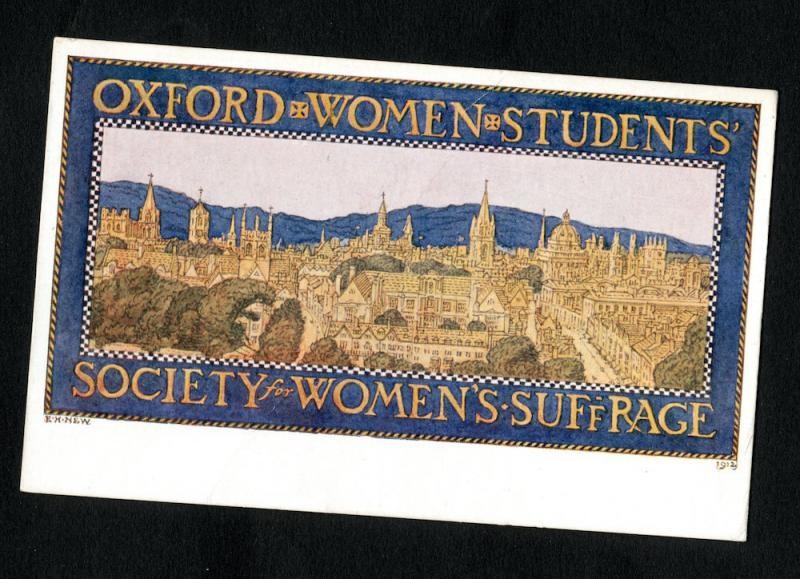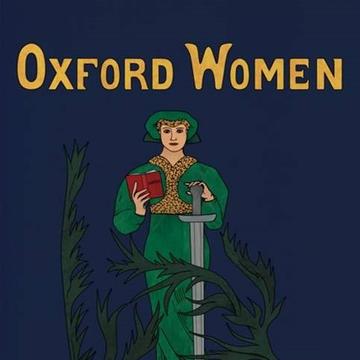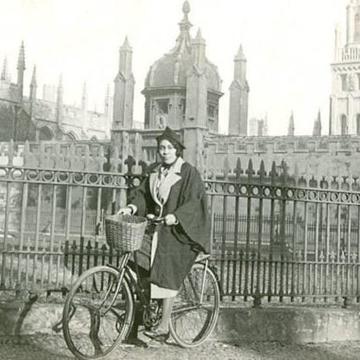Women’s, Gender and Queer History



The WGQ strand is relatively new and explores the different strengths of each of these approaches to provide a foundation for students’ independent research into any aspect of these histories. Oxford’s History Faculty is the largest in Britain and one of the largest in the world, and about one-third of the Faculty have research interests in this area. This means that you can combine your particular interests in women’s, gender or queer history with the specialist training you need in the history of any geographical area, period of time, or methodological approach. Whatever your area of specialisation, you will join a very lively research community within the Faculty and will be supported to develop the skills and understanding that you need to pursue original research.
You can also apply to the interdisciplinary Women’s, Gender, and Sexuality Studies Master’s programme, which offers courses in English, History, Philosophy, Classics, and Modern Languages. A pathway for historians is available in this course, and it is an equally valid route to doctoral study in History.
Core Historical Methods classes will create a community of students who will together explore how we have reached today’s intellectually exciting moment in the study of women’s, gender and queer history. By reading in all three literatures, and considering the intellectual influence each has generated, students will develop the critical analytical tools that this coming generation of scholars of women’s, gender and queer history will need. You will study the intellectual impetus behind the development of women’s history, gender history, and queer history, work with the exceptional collections held in the Bodleian Library and Ashmolean Museum, and examine the dialogue between these approaches by thinking critically about contemporary methodologies and approaches. Student presentations and discussion will enable students to debate, learn from each other, and form a community through which to develop their research interests in women’s, gender, and queer history across the rest of the academic year.
As part of the Skills component of the course, you will be supported to develop the specialist skills that you need to pursue your particular research interests, including the opportunity to improve your knowledge of European languages. Courses in Latin and other medieval language are also available. You will also be able to attend library information sessions, and also training sessions organised by Oxford University Computing Services to learn about text analysis software, GIS or statistical packages. The Faculty’s Centre for Women's, Gender and Queer Histories (WGQ) also holds regular interactive workshops on sources and approaches to research.
Option courses particularly relevant to the Women’s, Gender and Queer History Strand:
Throughout the degree, students work towards a dissertation. Recent or current topics for History Faculty Masters theses have included:
- “Subjective experiences of male cross-dressing and gender non-conformity in interwar Britain”
- “Women Writing History: Female Subjectivity and the Political Use of Memory in Women’s Accounts of the Easter Rising”
- “Entitled to Freedom: Black Women in the Mississippi Southern Claims Commission”
- “Virgin-Mothers and Chaste Wives: Conflicting Ideals of Womanhood in Anglo-Saxon England, 500 to 900”
- “Philanthropy and Women’s Experiences of Public Life in Early Third Republic France”
- “The activist subjectivities of Greenham Common Women's Peace Camp in the 1990s”
- “Offences relating to men who had sexual relations with other men in Berkshire in the period 1861-1919”
- “Ladies and Letters: The Political Activity of Three Aristocratic Women from 1678 to 1689”
- “Anglo-Jewish Women’s Everyday Experiences in London during the Second World War and the Formation of Wartime Identity”
- “The Bright Young People: Effeminacy, Queerness and Performativity in Interwar Britain”
- “The gender of martyrdom in early medieval England”
- “Constructing the Girl Citizen in England, 1870-1910”
- “The Censorship of Queer Culture in Inter-war Britain and Weimar Germany, 1918-1933”
- “The Churching of Women in Early Modern Denmark”
- “The ‘Third Sex’ on the British Home Front? Understanding Female Same-sex Sexuality during the First World War”
Faculty and Research Culture
There is a very lively research culture in women’s, gender and queer histories. The History Faculty supports the Centre for Women's, Gender and Queer Histories. WGQ organises research seminars, workshops, discussion groups and conferences to build a community of graduates. Women’s, gender, and queer histories are of course also an integral part of many of the other c. 50 seminar programmes on specific time periods and places supported by the Faculty.
Beyond the History Faculty, The Oxford Research Centre in the Humanities (TORCH) supports a rich research culture. The Faculty's graduate students have been active in organising the vibrant LGBTQ+ History Network, which students of all levels are encouraged to take part in. Across Oxford University, a wealth of events explore women’s and LGBTQ+ experiences, feminist and queer thought, and lived identities and inequalities. These include: Feminist Theory lectures (organised by WGSS) every Michaelmas Term, Feminist Thinking seminars (organised by WGSS students) as well as the huge range of presentations, seminars and workshops offered under the aegis of Intersectional Humanities.
The History Faculty’s commitment to research in this area has been demonstrated by the establishment in 2020 and 2024 of the Hillary Rodham Clinton Chair of Women’s History and the Jonathan Cooper Chair in the History of Sexuality. The Faculty was awarded an Athena SWAN Bronze Award for gender equality in 2019, which was renewed in 2025. Graduate students are integral to the Faculty’s on-going work to promote an inclusive and supportive working environment.
Roughly one-third of the Faculty list Gender, Women or Sexuality amongst their research interests. For details of their research interests and the full range of topics on which they would be interested in supervising graduate students, see the History Faculty website.



